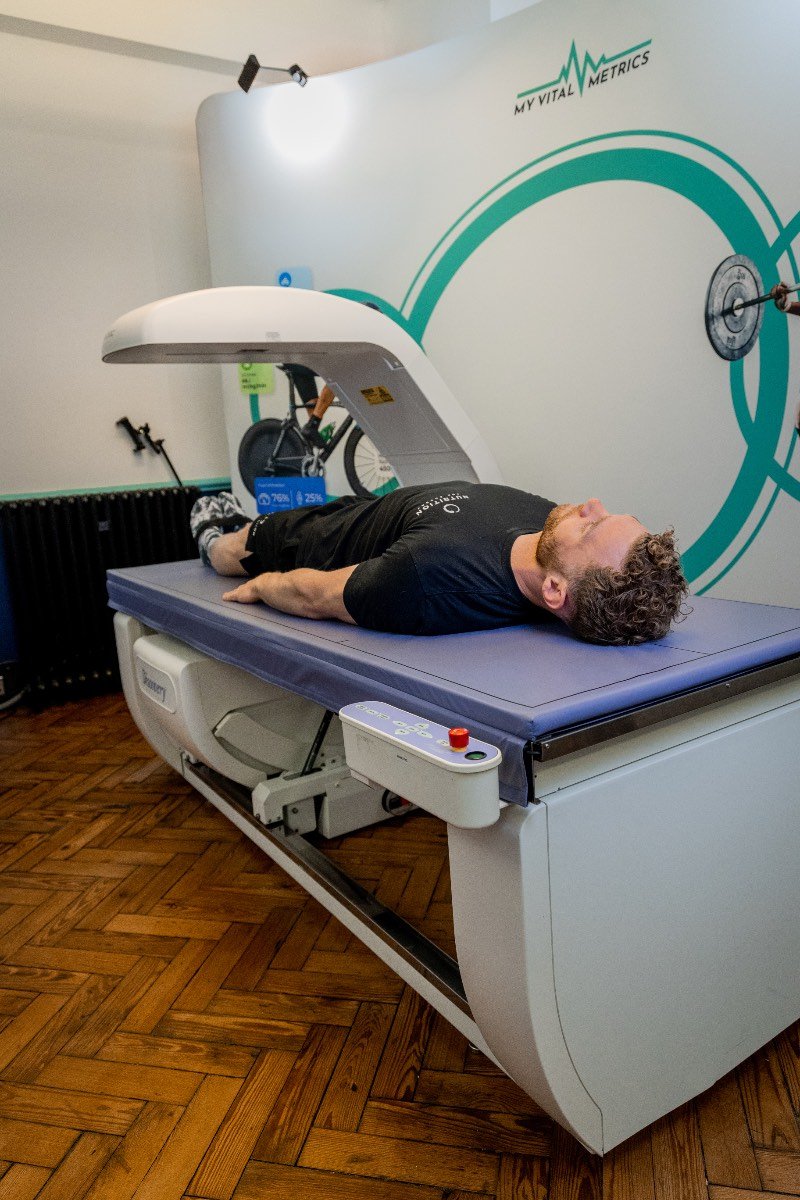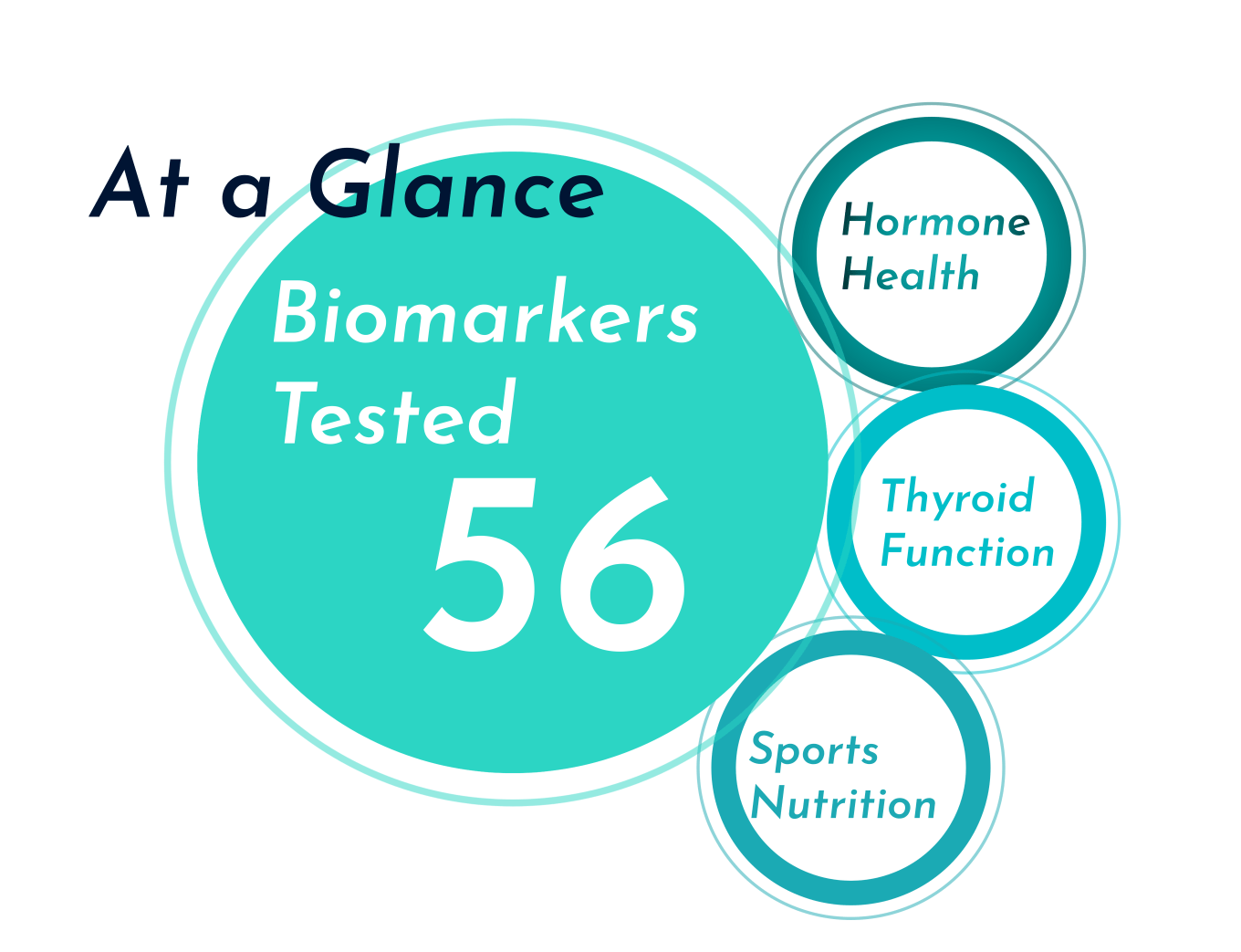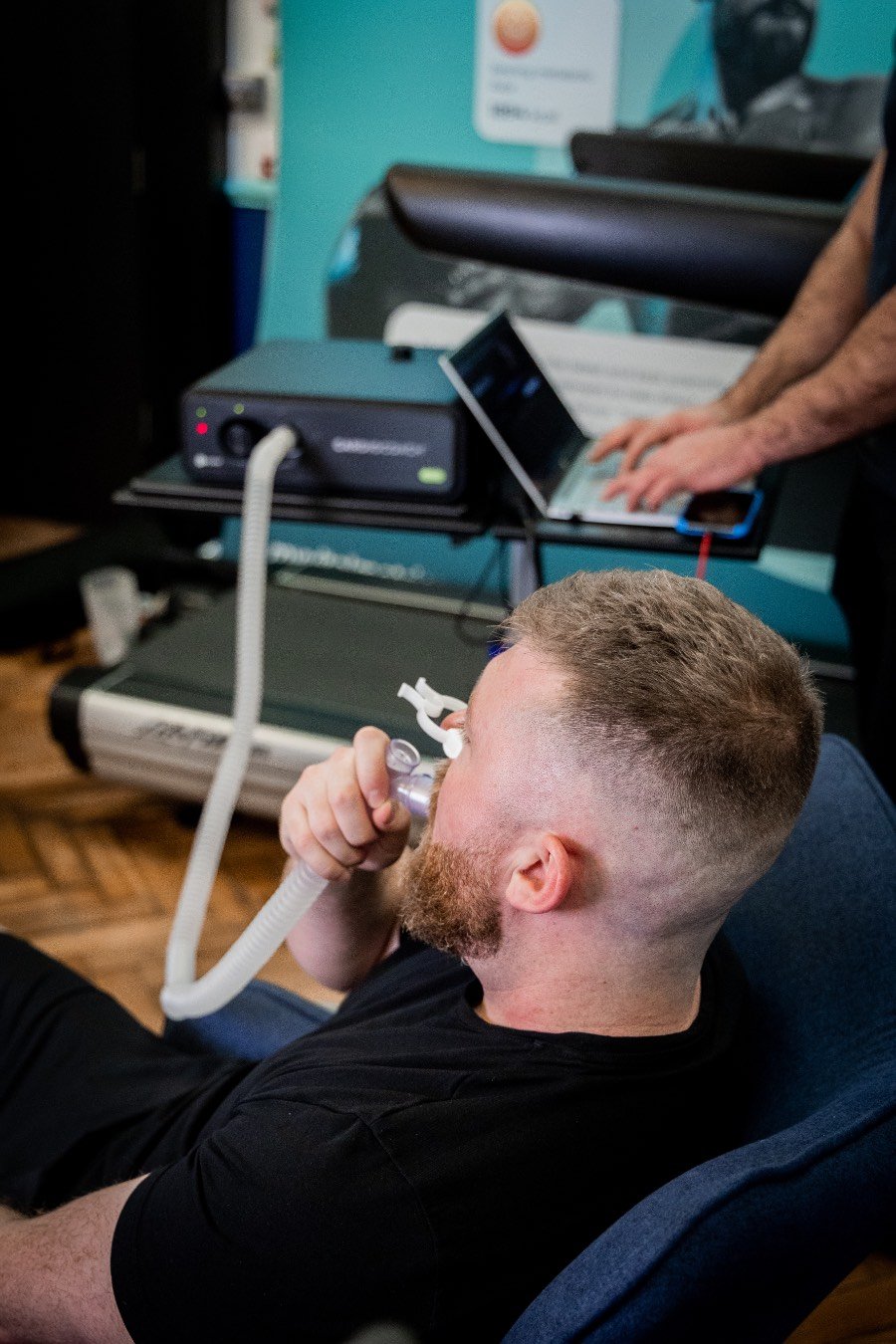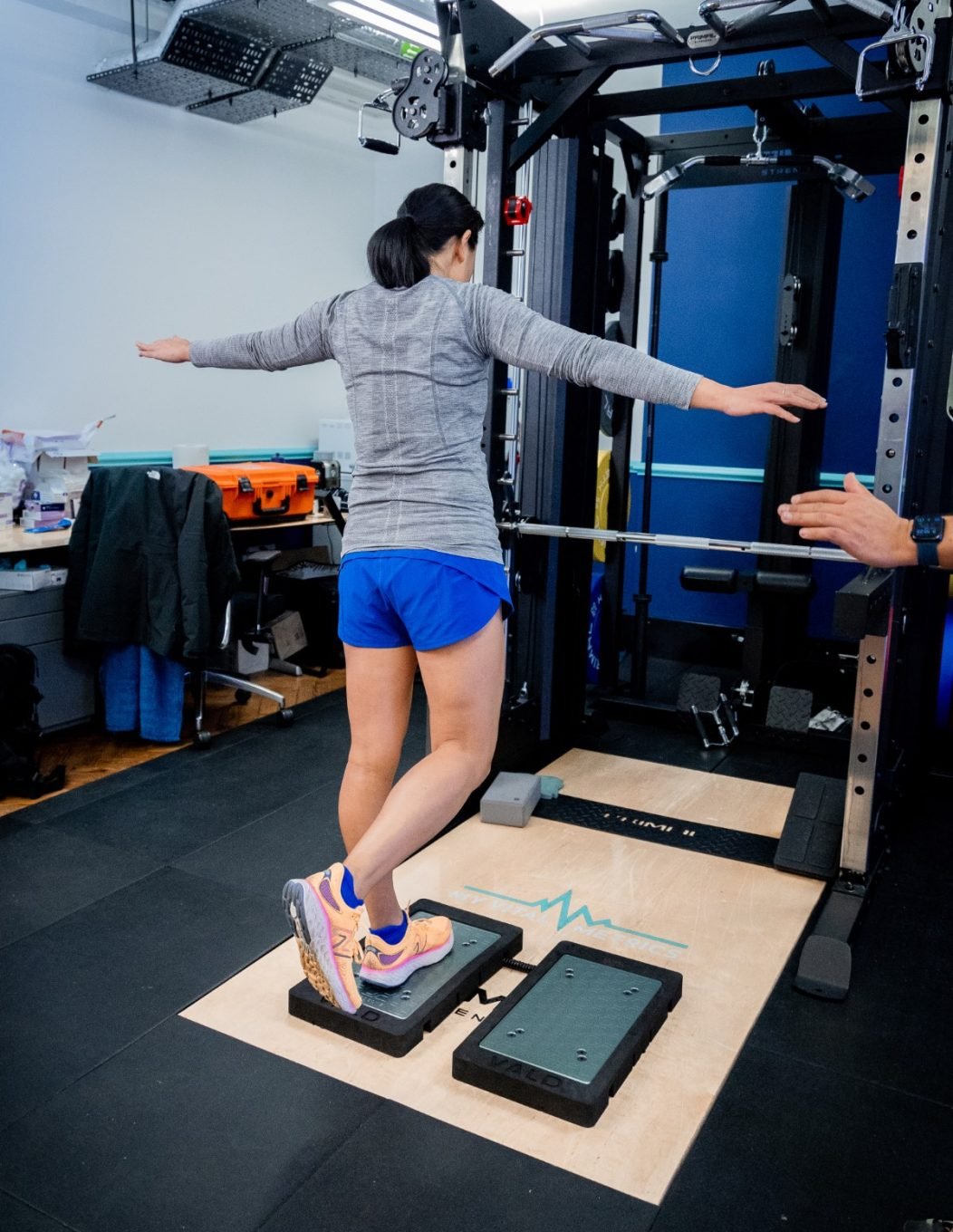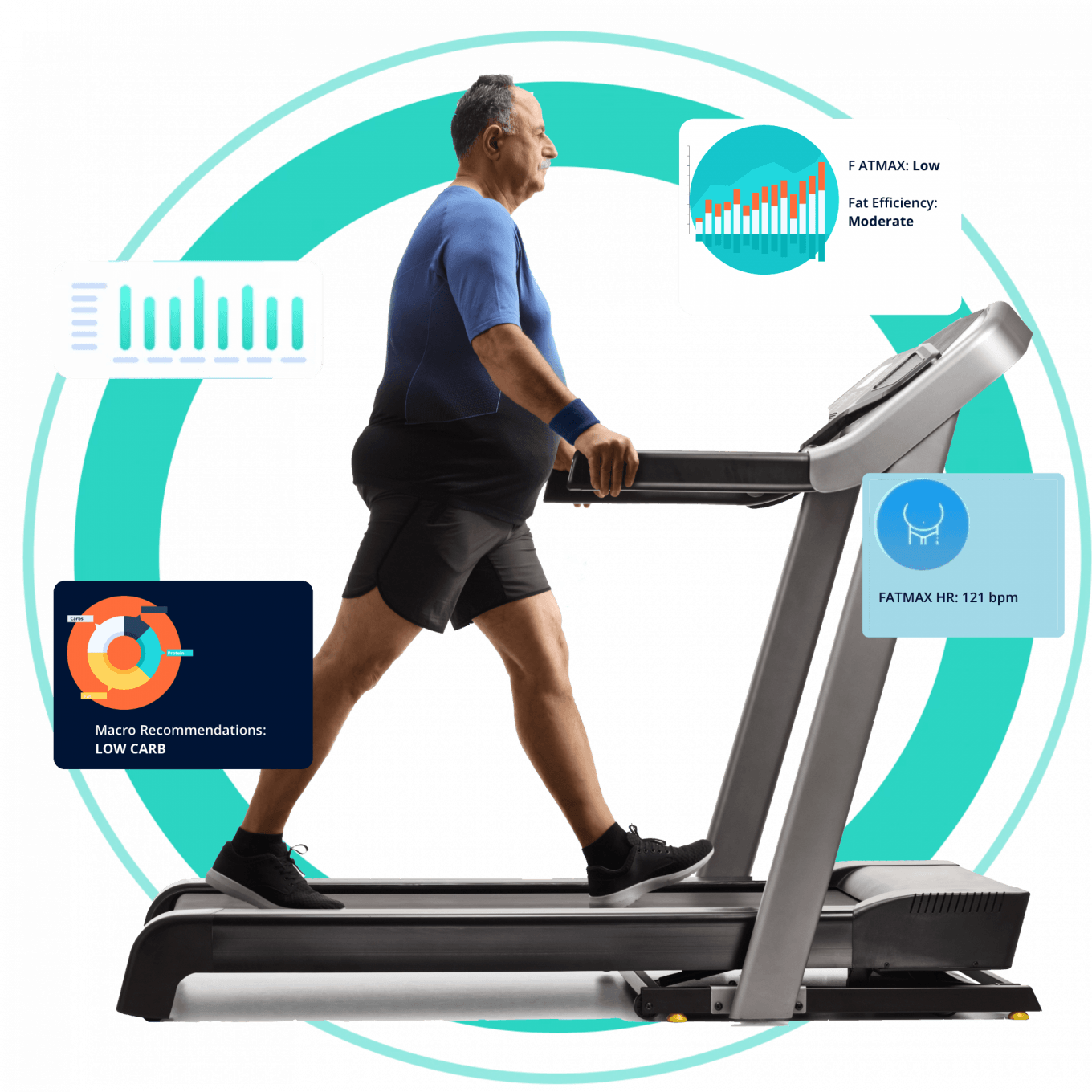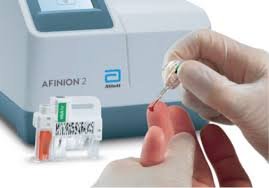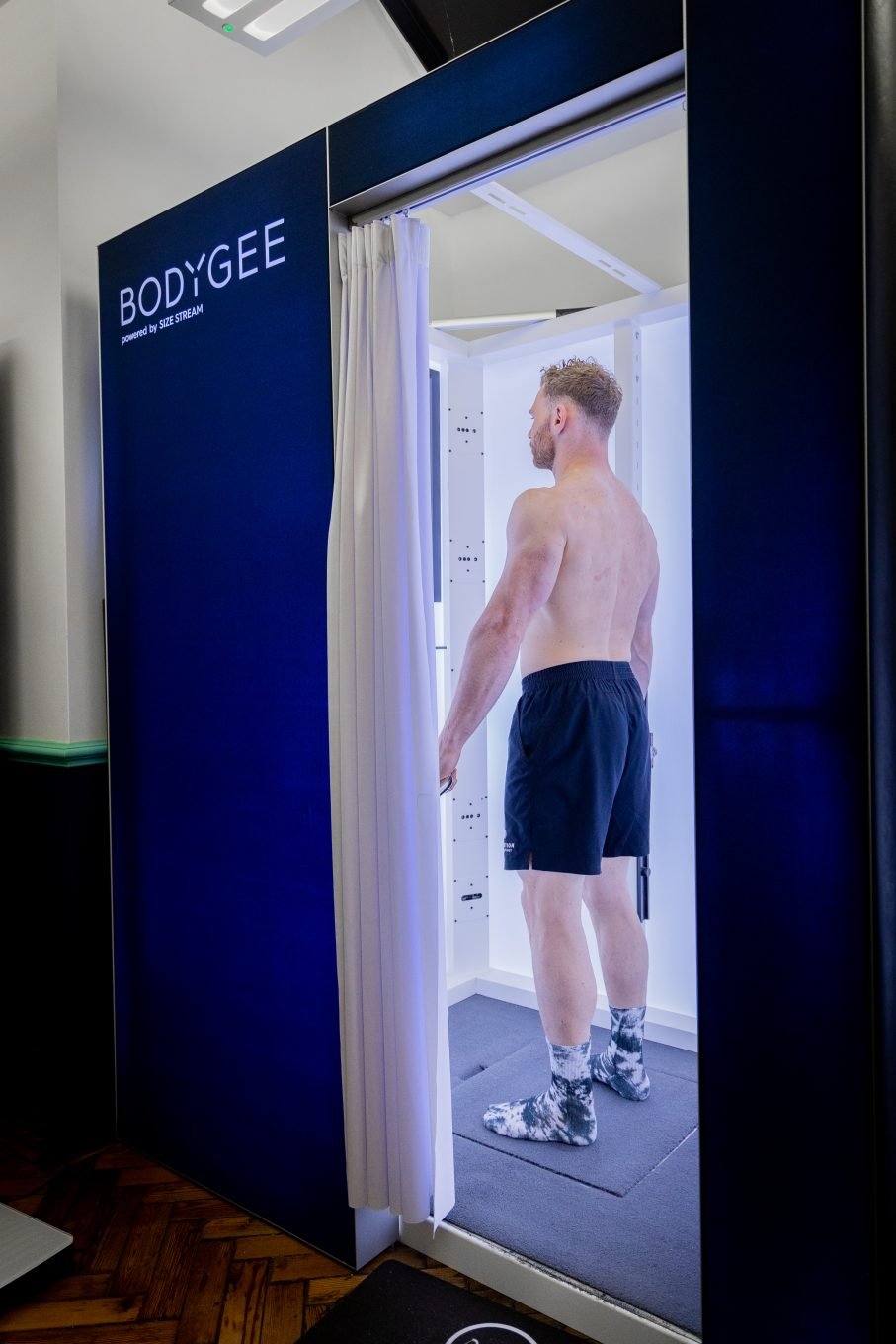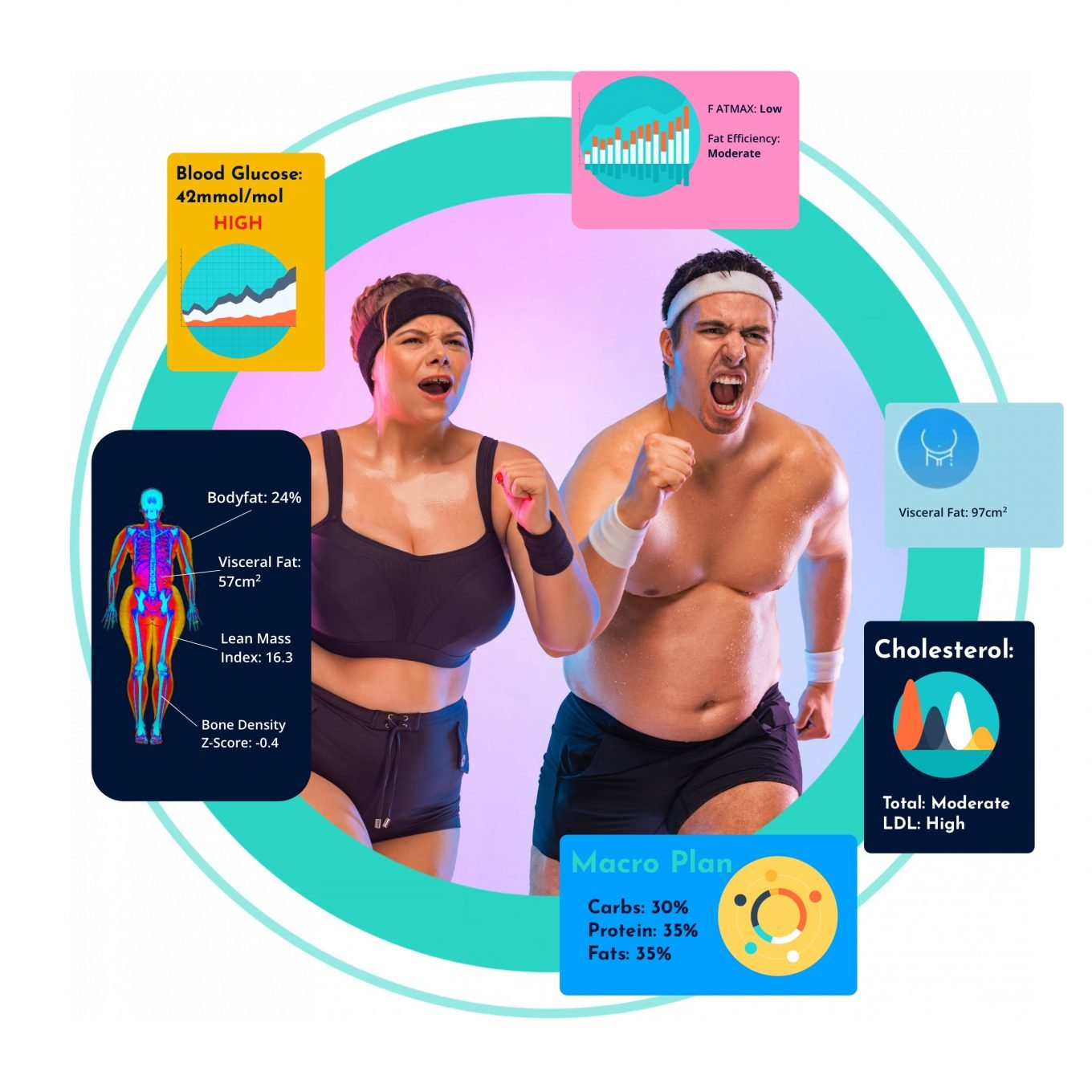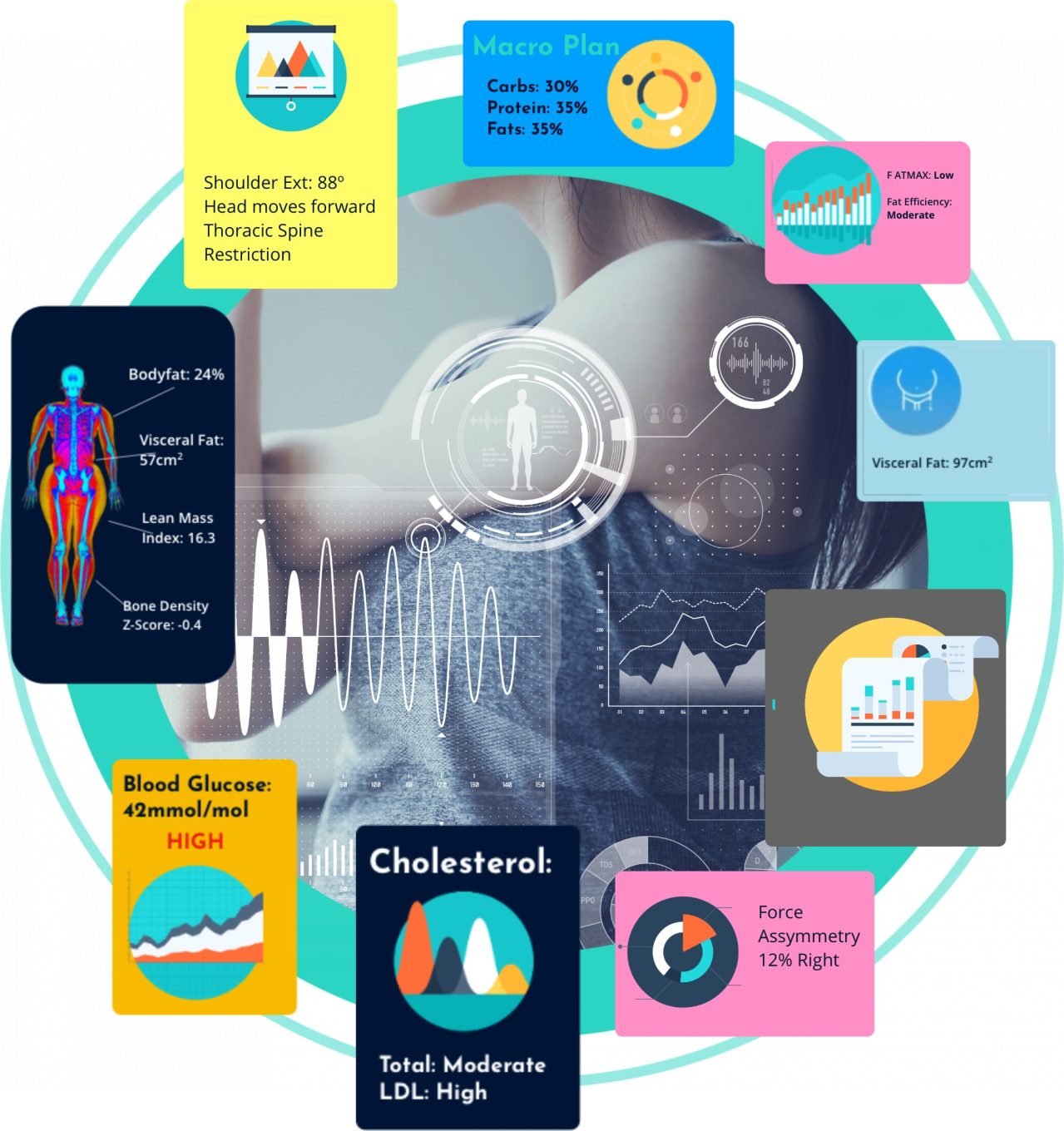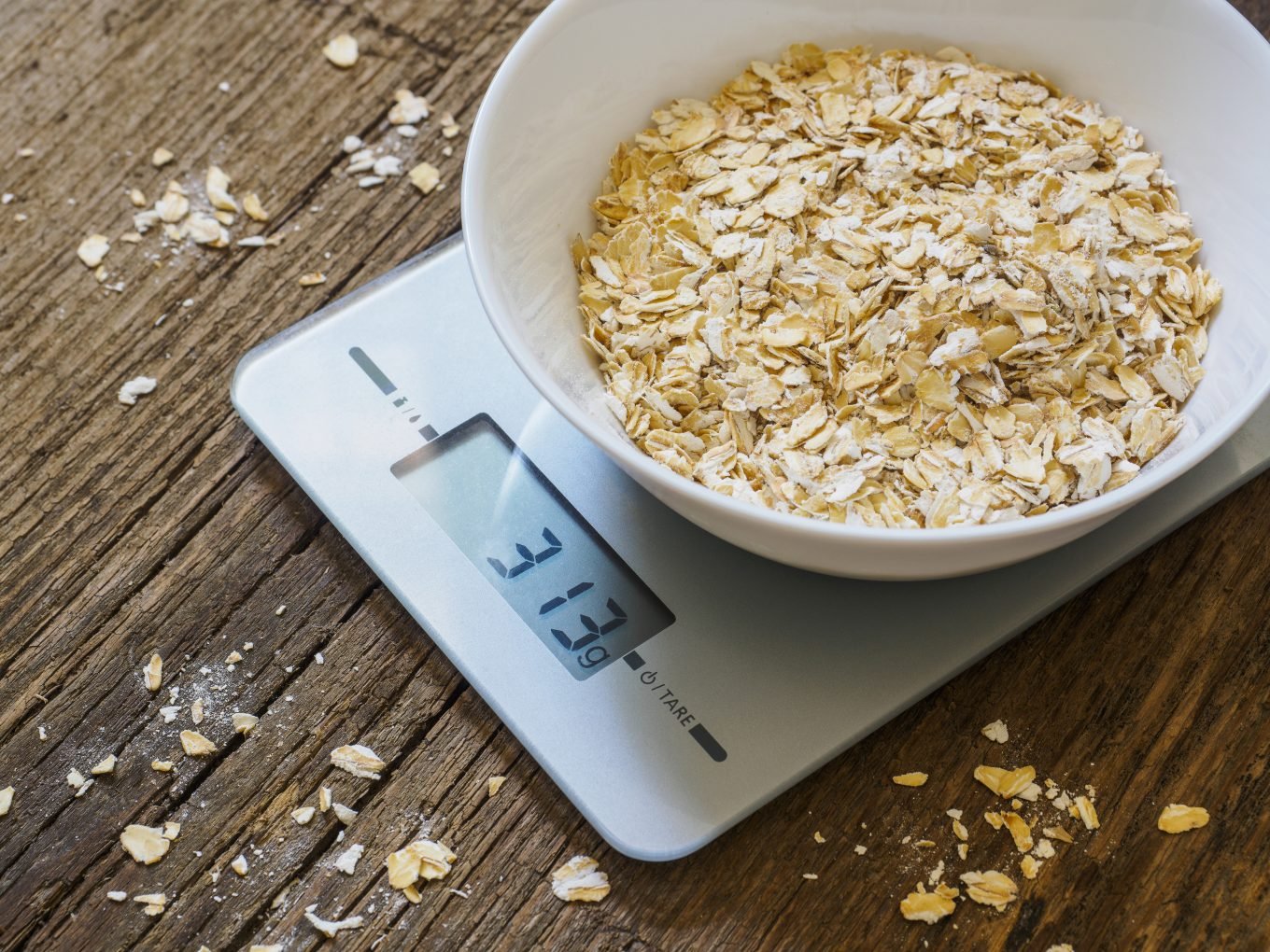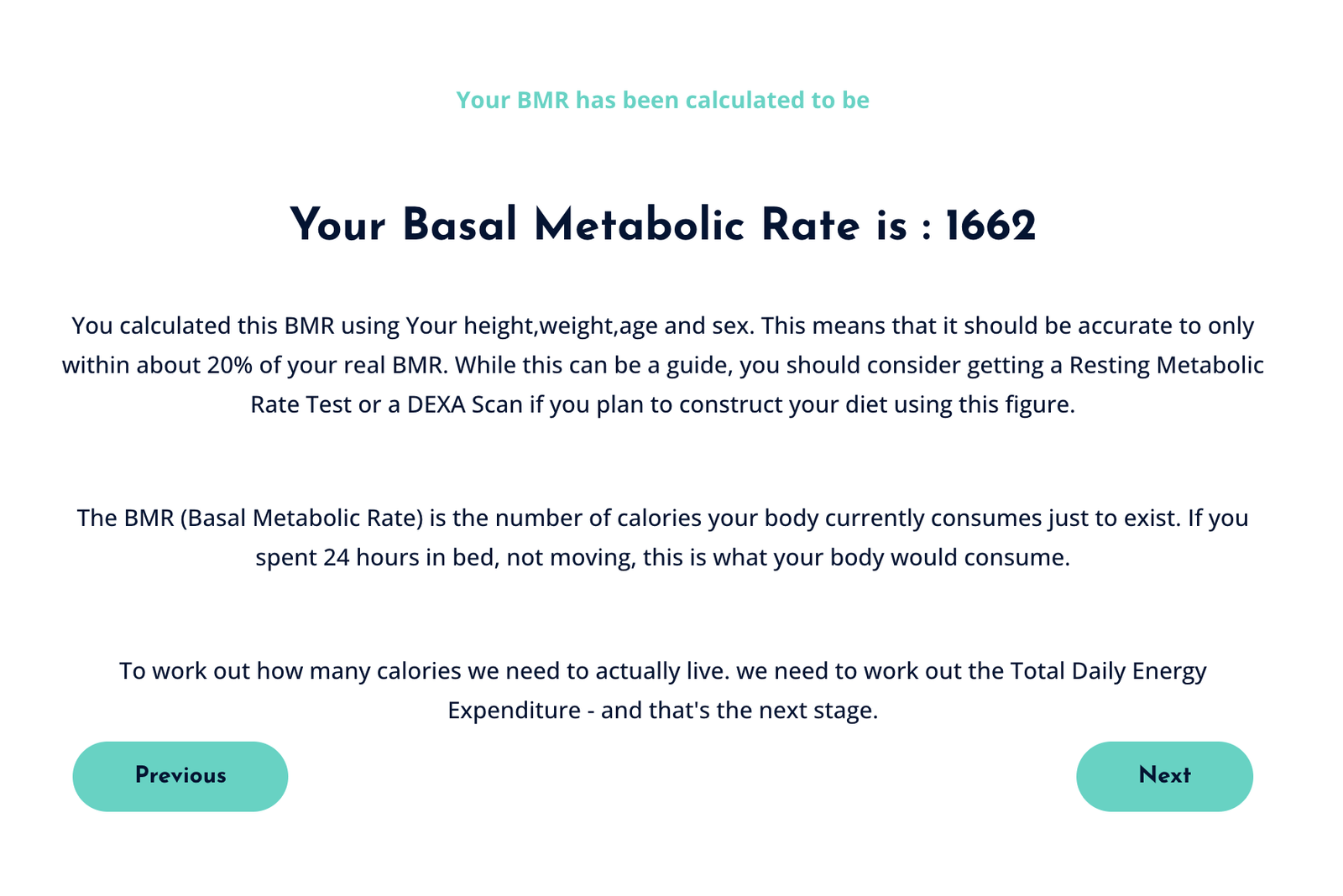One of the most common reasons you might not be losing weight is that you’re working with the wrong starting number. Most online BMR and TDEE calculators are notoriously vague, meaning you might not have the information you need to create a calorie deficit.
Here at My Vital Metrics, we’ve custom-built a BMR and TDEE calculator to provide you with the most accurate figures possible. Unlike most online TDEE calculators, ours takes into account the types and quantities of exercise you do, the type of job you work, the amount of sleep you get, and more.
If you’re looking for an even more accurate analysis of your caloric needs, a DEXA scan or Resting Metabolic Rate (RMR) test is a great way to take the guesswork out of your weight loss journey.
Reason 4: You’re retaining water or on your menstrual cycle
If the scale isn’t budging – or is even going up – while you’re maintaining a calorie deficit, this doesn’t necessarily mean you’re gaining weight.
There are a range of factors that influence the number we see on the scale, including weight from fat, muscle, other body tissues, water, and food travelling through the digestive system.
Hydration, in particular, can influence our weight – this is why it’s recommended to weigh yourself first thing in the morning, before food or drink. While water is a big part of our total weight, when we talk about “water weight” in the context of weight loss we’re usually talking about something a little more specific.
After consuming carbohydrates, the body stores carbohydrates as glycogen – a type of glucose used as energy in the body. Each gram of glycogen binds to 3-4g of water. So, when glycogen stores are high, water retention is higher to support this. On the flip side, when glycogen stores are depleted (after exercise, first thing in the morning, or on a lower-carb diet), water weight can drop. If you’re seeing big fluctuations in your weight, water retention could be the cause. Rather than focusing too much on daily fluctuations, prioritise a weekly weigh-in to get the bigger picture on any changes.
Similarly, it’s normal to see a change of +3-5 lbs during a menstrual cycle. This can be linked to hormonal shifts, water retention, gastrointestinal issues, a decrease in magnesium, or food cravings. Usually, this weight gain will correct itself shortly after.
Reason 5: You’re experiencing body recomposition
Not all weight loss is fat loss, and not all fat loss is going to show up as a shift on the scale.
If you’re maintaining a calorie deficit while working out, especially if you’re new to strength training, you may be gaining muscle and losing fat simultaneously. This can look like you’re not making progress – if you focus on the scale. Body recomposition has a host of health-related benefits, and can positively impact your metabolism, aiding future weight loss.
However, outside of this scenario, gaining muscle and losing fat at the same time isn’t common or can be hard to achieve. If you’re not seeing the scale shift and want to assess your body fat percentage or overall body composition, a DEXA scan is the best way to accurately do so.
Reason 6: It’s too soon to see weight loss results
Another reason you might not be seeing weight loss from your calorie deficit is that it’s simply too soon to see results.
At a rate of 0.5-1lb of weight loss per week, weighing in daily – or even weekly – isn’t likely to show a significant shift on the scale. Once you add in some of the other factors we outlined above (water retention, hormonal fluctuations, any inaccuracies in your tracking), it’s easy to see why someone might be discouraged at the start of a weight loss plan.
We have to remember also that the body likes ‘homeostasis’ meaning that it tries to keep everything the same. This might mean that you don’t see any movement on the scales for the first few weeks while the body adjusts to the new deficit.
When it comes to weight loss, consistency is key. The changes will come! As you track your weight loss, remember that the scale is just one way of many to assess your progress. Measurements, the way your clothes fit, and the way you feel in your body can all be useful indicators along the way. For the most accuracy, a DEXA scan can offer accurate insights into any changes in your body composition.
Reason 7: You’re over-exercising, losing muscle, or stressed
If you’re frequently stressed, not getting enough quality sleep, or over-exercising, this could be the cause of your weight loss plateau.
Excess cortisol from high stress can hinder weight loss by inhibiting the breakdown of fat, as well as impacting dopamine levels that can lead us to seek out foods higher in sugar, salt, or fat. Keeping stress levels in check through regular social interaction, engaging in meaningful activities, or practising yoga or meditation can have a positive impact on your weight loss journey.
Similarly, sleep plays a key role in the regulation of leptin and ghrelin – the two “hunger hormones”. Getting less than 6 hours of sleep a night tends to increase appetite, as well as lead to poorer food choices. Prioritise getting enough sleep to help keep your weight loss on track.
Finally, while exercise can and does benefit weight loss, overdoing it can have the opposite effect. Overtraining can spike cortisol levels and lead to higher stress, contribute to fatigue and moving less in the days to follow and lead to over-compensating for the training by eating more. Incorporating regular strength and cardio exercise into your routine will be more beneficial to your weight loss than following a cycle of over- and then under-exercising.
Reason 8: Medication or an underlying health condition is affecting your metabolic rate
Finally, if none of the reasons above apply to you, you have an underlying health condition, or you’ve been experiencing a significant plateau in your weight loss, it might be worth consulting a medical professional.
A doctor can help rule out any underlying causes for your difficulty losing weight, including thyroid conditions, PCOS, hormonal imbalances, or prescription medications. However, make sure not to adjust your existing treatment plan or medication regime without first consulting a medical professional.
Ready to create a sustainable calorie deficit?


